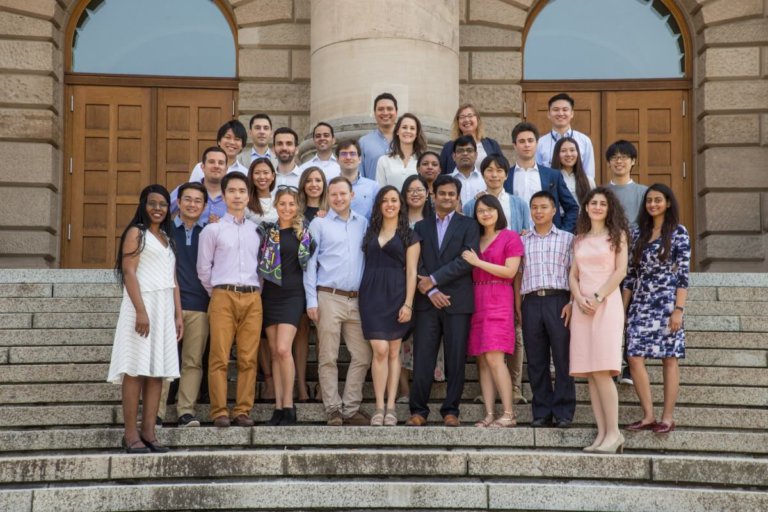
The first accounts of intellectual property (IP) protection date back to ancient Greece. As such, the concept of inventiveness and investment in research, granting the inventor exclusive rights to the fruits of the creation, has been around a long time, too.
Patents, trademarks and copyrights have become more widely used and convoluted as the world has been transformed by globalisation and new advances in technology.
Now well into the digital revolution, the clash between the entertainment industry and the internet poses all sorts of concerns over copyright, privacy and user interest, all of which can arise from a single YouTube video alone. Patents also play a huge role in today’s research-heavy industry, from inventions as far-reaching as those involving human genetic material to simple e-readers like Amazon’s Kindle.
All this means that IP professionals are getting very busy. From science to law, business to the arts – there’s a big, sustained demand for expertise in IP issues today.
“IP rights-intensive industries generate more than a quarter of employment and more than a third of economic activity in the European Union,” wrote António Campinos (then President of the European Union Intellectual Property Office (EUIPO)) and Benoît Battistelli (then President of the European Patent Office (EPO)) in a 2013 report titled, Intellectual property rights intensive industries: contribution to economic performance and employment in the European Union.
To capitalise on this demand, the Munich Intellectual Property Law Center (MIPLC) is the place to be.
Located in Munich, Europe’s IP capital, MIPLC is operated by four distinguished institutions: the Max Planck Society, the Technical University of Munich (TUM), George Washington University, and the University of Augsburg.
The MIPLC offers an international and interdisciplinary, one-year English language IP and Competition Law LL.M. program, designed for participants from a wide variety of educational, professional and international backgrounds. Combining specializations crucial to modern IP transactions, classes are a diverse convergence of ideas, with 50 percent of students holding a legal background, and the other half possessing a bachelor’s or master’s degree in science or engineering.
The program has achieved a lot since its establishment in2003, according to Professor Josef Drexl, Chair of the MIPLC Board.
“The Center has not only educated an impressive number of IP professionals from all around the world who later managed to find excellent jobs in diverse areas of IP practice and research. The MIPLC has also gained recognition in the global IP community as an institution that offers an internationally leading master’s program,” Drexl says.
Its success can be attributed to several factors: small class sizes (a maximum of 38 students per year) ensure its international, world-renowned faculty can give the attention due to equip students with the skills and knowledge needed to handle complex IP issues in a global context. Core modules focus on patents, copyrights, and trademarks, while elective courses allow students to dive deeper into interests surrounding Asian Patent Laws, Protection of Biotechnological Inventions, Big Data, and more.
“In one program, I was able to acquire knowledge of international, US, EU, and Japanese IP law,” says Junjie Zheng from China.
Then there’s the faculty, which judging by their combined list of achievements, deserves every “world-renowned” accolade stated on the MIPLC website.
Professor Dev Gangjee, for example, works at the University of Oxford Faculty of Law and is a visiting professor at the MIPLC, where he teaches the class “Protection of Geographical Indications.” John Duffy, to name another renowned lecturer at the MIPLC, is a professor at George Washington University Law School in Washington, DC, USA. At the MIPLC, he teaches a class on “Theoretical and Economic Foundations of Intellectual Property.”
Moreover, numerous researchers of the acclaimed Max Planck Institute for Innovation and Competition in Munich lecture in the MIPLC LL.M. program, including Professor Annette Kur, whose classes include “European, US and International Design Law.”
“Learning the US and the European patent law from renowned patent attorneys and chief judges brought the courtrooms into the classroom. It was exciting to have as [our] professors [are] the persons actually shaping worldwide IP law,” says Kothainayaki S. Krishnamoorthy from India.
MIPLC students consequently learn from the best in IP Law. Teaching methods focus on case studies, problem solving and the practical application of knowledge, with special emphasis on research, litigation and negotiation skills. Newly acquired skills are then practiced and tested in simulated court cases and workshops.

Source: MIPLC
To round it off, students also enjoy individual and group tutorial sessions and benefit from work spaces in shared offices, as well as access to legal databases and the Max Planck Institute’s IP library (which holds more than 200,000 volumes). Students are encouraged to join extracurricular activities such as international academic conferences, study visits, and more.
At the end of the academic year, MIPLC soon-to-be graduates have the option to pursue an internship with an IP law firm, the IP department of a large international corporation, or at an international institution like the EPO, the EUIPO, or the World Intellectual Property Organization (WIPO). MIPLC enjoys long-standing co-operations with many internship providers, so the success rate of internship placements is very high.
Such opportunities help MIPLC students form the building blocks to successful careers. Equipped with a globally applicable skillset and an international network of professional contacts and friends, career pathways naturally expand. MIPLC alumni have embarked on ambitious careers as IP litigation attorneys or patent attorneys in major law firms, as IP officials for the EPO, the EUIPO, or WIPO, or as legal officers or IP managers within private industries.
MIPLC faculty and staff boost this further with personalized assistance, catering to individual student strengths and needs. Instead of using a standardized formula, this school provides a bridge between graduate and employer, helping students land a robust, productive and long-term career in IP.
Click here to find out more about MIPLC
Liked this? Then you’ll love…
Suffolk Law Boston – Educating the lawyers of tomorrow
What law graduates need to thrive in the legal landscape today







